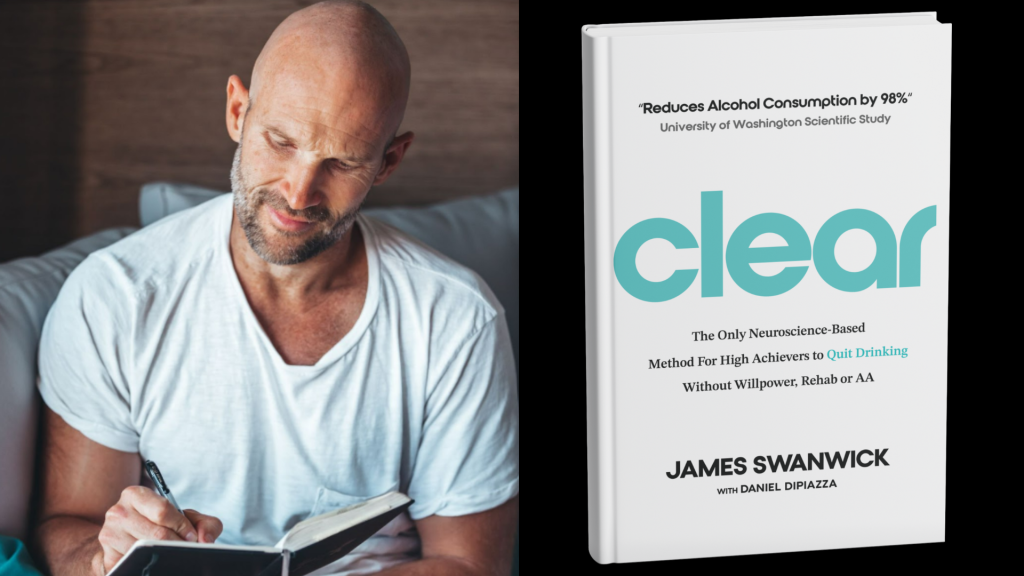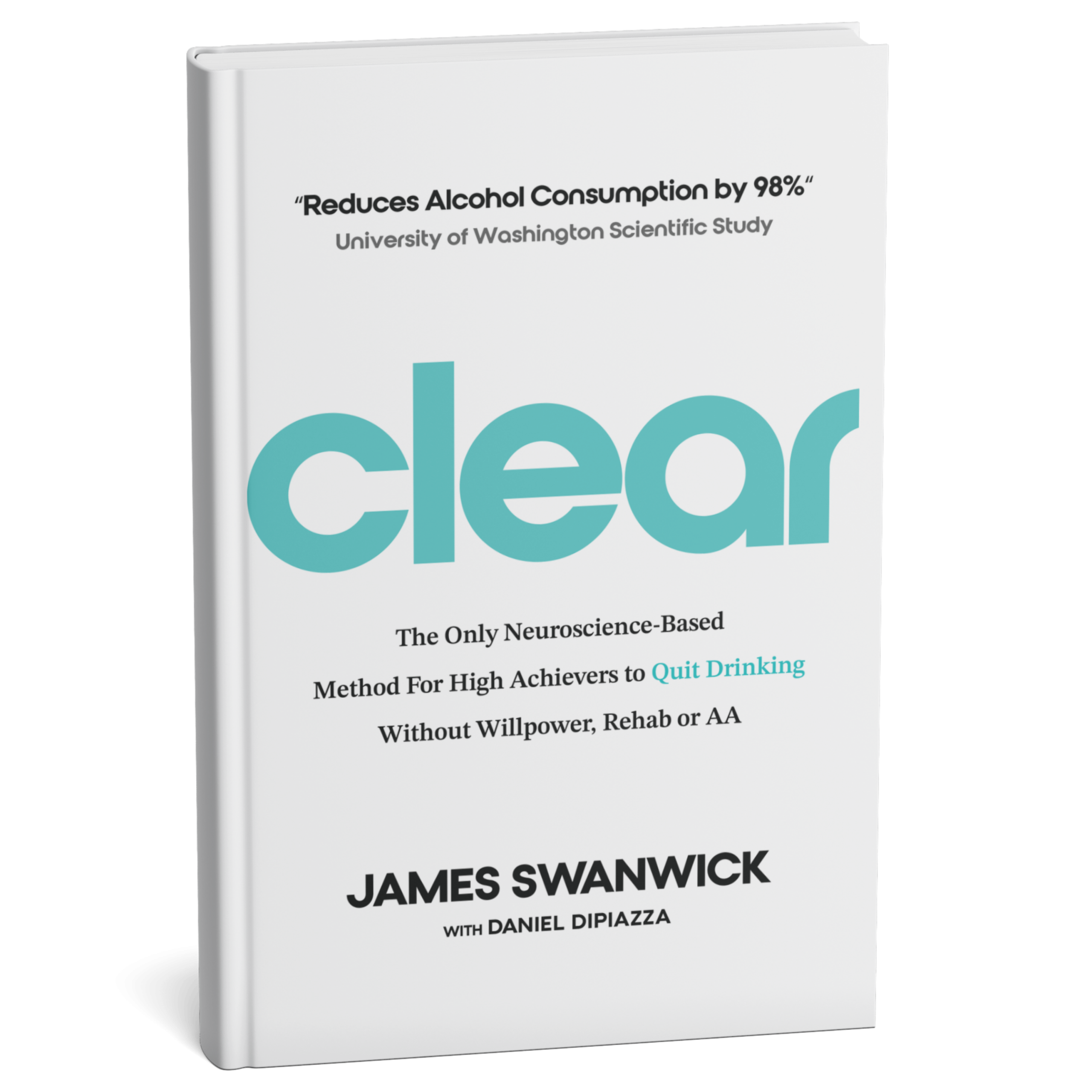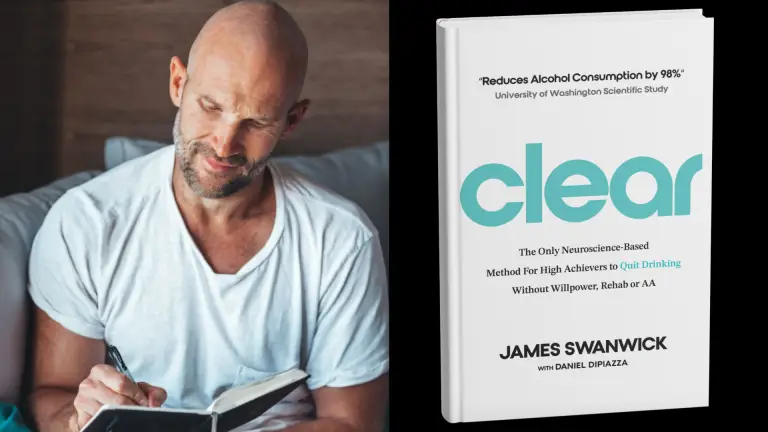Ever wondered what life without hangovers might be like? If so, you’re not alone. A growing wave of people are “sober curious” – they’re exploring life without drinking alcohol because they want to, not because they have to.
The sober curious movement invites people to reexamine their relationship with alcohol on their own terms, without the pressure of formal rehab or AA.
What Does “Sober Curious” Mean?
At its core, sober curiosity is the practice of mindfully examining your relationship with alcohol—asking how, when, and why you engage in alcohol consumption, and what impact it truly has on your life. The term was introduced by author Ruby Warrington in her book Sober Curious, and it’s since sparked an entire movement, especially among young adults looking to explore sobriety without needing to hit rock bottom.
This isn’t about labeling yourself or declaring lifelong alcohol abstinence. It’s about creating space to question the role alcohol plays in your daily routines, your relationships, and your mental health. Many people, especially those in their 20s and 30s, are choosing to engage young adults in conversations around alcohol use—not because they have a problem, but because they’re curious about what life might look like with less (or no) drinking.
You don’t have to make a permanent decision. You might take a month off, skip alcohol at social events, or track how you feel after nights of not drinking. The idea is to explore, observe, and decide for yourself—with clarity and intention.

How the Sober Curious Movement Started and Spread
Over the past decade, the sober curious movement has evolved from a niche idea into a mainstream cultural shift. What began as quiet questioning has become a growing conversation, especially among young adults rethinking their alcohol consumption. Sparked by pioneers like Ruby Warrington, the movement reframed choosing to stop drinking as a mental health boost and a purposeful lifestyle choice, rather than a restriction.
Challenges like Dry January and Sober October gained popularity in the late 2010s, offering a safe space to explore alcohol use without pressure. These temporary breaks revealed surprising benefits: more restful sleep, elevated mood, and a greater sense of clarity. For many, these short-term efforts became stepping stones to long-term change—despite initial abstinence challenges.
Fueling the momentum, social media platforms began showcasing young adults proudly living alcohol-free lives. This visibility has helped normalize the shift and challenge the dominant drinking culture that once defined fun and social belonging.
The movement encourages people to look deeper—to ask whether drinking alcohol truly serves their goals or hinders their pursuit of a deep connection with self and others. Even beverage companies are adapting, offering more alcohol-free alternatives that reflect a generation choosing mindfulness over mindless consumption.
Sober Curious vs. Being Sober: What’s the Difference?
Understanding what sober curious means requires a look at how it differs from traditional sobriety. When someone says they’re “sober” in the recovery world, it typically means they’ve chosen to stop altogether due to a history of substance use—often with support from rehab, AA, or similar programs.
That path tends to involve a firm, lifelong commitment. But the sober curious path is different. It’s a mindful approach to drinking, where individuals reduce or eliminate alcohol not out of necessity, but out of a desire for better health, self care, and a clearer mind. You might commit to a few alcohol free days, cut back to less alcohol during social events, or simply observe how drinking impacts your ability to manage stress and show up for life.
One key distinction is how “slip-ups” are viewed. In traditional sobriety, drinking after quitting can be labeled a relapse. But sober curiosity allows for learning. Choosing to drink again doesn’t undo your progress—it offers more insight into your relationship with alcohol. This perspective invites young people and others to explore change without fear, judgment, or shame.
Over the past year, more people are discovering that even small reductions in drinking can lead to blissful sleep, improved energy, and a lower risk of long-term issues like heart disease. The benefits aren’t limited to your body either—they extend to how you connect with others, how you support people around you, and how you feel about yourself. The sober curious journey turns your health into a gift—not a punishment—and makes space for growth at your own pace.

Health Benefits of Going Alcohol-Free
One of the most immediate rewards of adopting a sober curious lifestyle is experiencing the health benefits firsthand. Within days, many people notice better sleep, clearer thinking, and more stable moods—especially young adults who are just starting to examine their alcohol use. You may find your energy levels rise, your mornings feel easier, and your emotional state becomes more balanced without the ups and downs tied to alcohol consumption.
Physically, cutting back—even for a set period like a month—can result in lower blood pressure, healthier liver function, and easier weight management. Removing the empty calories and sugar often found in beer, wine, and cocktails frees your body to heal and perform at its best. These are just a few of the other benefits that come from giving your system a break.
But the gains aren’t just physical. The decision to reduce drinking often reflects a more mindful approach to life overall. Many people in the sober curious space aren’t responding to a crisis; they’re making a thoughtful approach to elevate their lives and mental clarity. And the results? More emotional resilience, better decision-making in social settings, and a stronger foundation for mental health.
This isn’t about being forced to choose sobriety as the only option in response to addiction—it’s about building greater readiness for a life of presence, connection, and purpose. With fewer distractions and clearer cognition, your brain can begin to rewire itself in powerful ways (as we explore in Rewiring Your Brain in Recovery). The choice to live alcohol-free, even temporarily, is a powerful step toward becoming the best version of yourself.
Living the Sober Curious Lifestyle
So what is life really like when you embrace the sober curious lifestyle? In a word: fulfilling. By removing or reducing alcohol intake, many sober curious individuals report having more time, energy, and clarity. Without the noise of regular alcohol consumption, life slows down in the best way. You might finally start that early-morning workout or dive into a hobby that once felt out of reach. Everyday moments—like a sunrise walk or an unhurried weekend breakfast—become richer and more meaningful.
This isn’t just about avoiding the hangover; it’s about inviting a limitless presence into your day-to-day life. You’re not numbing or escaping—you’re present, fully awake, and often more connected to yourself and others. That’s the deep connection awaiting those who explore alcohol abstinence.
Socially, choosing alcohol completely out of your life doesn’t mean isolation. On the contrary, it shifts your experiences. Coffee meetups, game nights, and movie marathons become your new go-tos. Even when you’re at a bar or event, non-alcoholic drinks like mocktails and zero-proof beers let you stay engaged without the consequences of alcohol abuse. It’s no longer rare to find events and venues that cater to people who are reducing or eliminating alcohol use.
While some people explore sober curiosity for wellness, others see it as a path to preventing more serious issues like alcohol use disorder or liver disease. The World Health Organization has linked even moderate drinking to negative outcomes, reinforcing the idea that reducing substance use—even without addiction—is a smart move for your health.
That said, transitioning away from alcohol can come with some abstinence challenges. Navigating social pressure, changing routines, or handling emotions without the aid of alcohol might feel uncomfortable at first. But those challenges often become growth opportunities, unlocking greater emotional freedom and a stronger sense of self. Living this sober lifestyle isn’t about restriction—it’s about choosing the version of life that serves you best.

Overcoming Challenges and Social Pressures
Deciding to stop drinking, even temporarily, can bring up some social friction—especially at the beginning of your journey. Friends may ask, “Why aren’t you drinking?” or casually suggest you “just have one.” For younger generations navigating a culture built around alcohol, the pressure to fit in can feel intense. It’s completely normal to worry about being left out or labeled as boring in these moments.
But those early stumbles usually smooth out over time. A simple, confident answer like, “I feel better when I don’t drink,” or “I’m doing Dry January,” is often enough to shut down questions without conflict. You don’t owe anyone an explanation, and the right people will come to respect your decision. This is your health, your choice, and your path.
Adopting a sober curious approach doesn’t mean you’re never going to a party again—it just means you’re showing up differently. Choosing non alcoholic beverages at social gatherings allows you to stay engaged while still honoring your goals. Plus, you’ll probably notice improved sleep, a clearer mind, and greater focus during the days that follow.
According to the National Institute on Alcohol Abuse and Alcoholism, even short breaks from drinking can positively impact your health, reduce your risk of long-term health effects, and enhance overall health and wellness.
Outgrowing Friends and Finding Support
As you shift your alcohol use, you might realize that some friendships were rooted in shared drinking habits—not in shared values. You could find yourself naturally outgrowing friends who don’t support your efforts to live alcohol-free. While that can feel isolating, it’s also a powerful moment of clarity.
The upside? You now have the space to seek out people who align with your values and support your choices. Whether through online communities or local sober meetups, connection is available to those who reach for it. A strong support system can be the difference between a lonely transition and a liberating transformation.
Tips for Starting Your Sober Curious Journey
- Set a trial period. Commit to a short challenge, like 30 days without alcohol. Having a clear timeframe (your own “Dry January,” even if it’s not January) gives you a goal to work toward and a chance to really notice the changes in how you feel.
- Find satisfying alternatives. Stock up on alcohol-free drinks that you enjoy – whether it’s sparkling water with lime, tasty mocktails, kombucha, or alcohol-free beer. Having a drink in hand (just without the alcohol) can make social situations easier and still feel special.
- Plan ahead for triggers and cravings. In the early days, be mindful of situations that might tempt you to drink. It’s okay to skip or leave events that revolve around alcohol if you need to. If you do go out, consider bringing your own non-alcoholic drink or have an exit strategy so you don’t feel stuck in an uncomfortable spot. If urges hit, have a go-to distraction – maybe take a walk, call a friend, or grab a tasty alcohol-free drink. And if you do slip and have a drink, don’t panic. Just start fresh the next day (some people use a Relapse Prevention Worksheet to map out triggers and coping strategies ahead of time).
- Find support. Tell a close friend or family member about your plan so they can encourage you (or even join in). Having a “sober buddy” or at least someone who knows about your goal will help keep you accountable. You can also use a tracker app to log your progress and see how much money you’ve saved – a nice motivator.
Spotlight: James Swanwick’s Alcohol-Free Lifestyle
A leading voice in the sober curious movement is James Swanwick, an entrepreneur who champions alcohol-free living as a path to a better life. Swanwick founded the Alcohol-Free Lifestyle platform to help professionals remove alcohol from their lives and reach their full potential.
His philosophy aligns with the sober curious ethos: quitting alcohol isn’t about adopting a negative label or missing out, but about gaining an edge in health, clarity, and performance. Swanwick often points out the “hidden costs” of drinking – how even a couple of drinks can drain your energy and cloud your focus – and he provides practical strategies rooted in science to help break the habit.
James Swanwick’s methods don’t rely on willpower or traditional 12-step programs. Instead, he uses a neuroscience-based approach to help people rewire their habits and cravings, framing an alcohol-free life as an upgrade rather than a sacrifice.
He also hosts the Alcohol-Free Lifestyle podcast and runs 90-day alcohol-free coaching programs that provide guidance and support. Through his work, Swanwick has shown that giving up alcohol can be a catalyst for improving sleep, relationships, and even business success.

James Swanwick’s Book CLEAR
In 2025, Swanwick released a book called CLEAR: The Only Neuroscience-Based Method for High Achievers to Quit Drinking Without Willpower, Rehab or AA. It’s a guide to cutting out alcohol without relying on willpower or formal programs. The book explains how even “normal” drinking can quietly hold you back, and it lays out a step-by-step system to quit drinking and take back control of your life.
In essence, CLEAR empowers readers with knowledge of how alcohol affects the brain, showing that you don’t need to hit rock bottom to benefit from quitting alcohol. With science-backed strategies, anyone can remove alcohol and reap the rewards of a clearer, healthier, more energized life.

Pick Up Your Copy of Clear Here
Buy on AmazonEmpowerment and Living a Full Life Beyond Alcohol
Ultimately, the sober curious movement is about empowerment and choice. It’s a reminder that you have the power to question how alcohol fits into your life and to make changes purely because it feels right for you. As Recovered On Purpose often emphasizes, sobriety is about building a life you love.
Sober curiosity fits that vision by encouraging an inspiring, inclusive, and empowering approach to alcohol-free living. Anyone can try it – whether you’ve struggled with alcohol in the past or you’re simply curious about how you might thrive without it.
By exploring life beyond alcohol, you’ll discover that you aren’t missing out on anything – in fact, you’re gaining so much. The longer you go without drinking, the more you see that fun, relaxation, and connection don’t come from a bottle; they come from within you and from the genuine experiences you create.
Being sober curious is really about living on your own terms. It’s proof that you don’t need a drink in hand to enjoy life’s moments to the fullest. Life in sobriety can be vibrant, fulfilling, and truly self-directed – no rehab or AA required.
Adam Vibe Gunton is an American author, speaker and thought leader in addiction treatment and recovery. After overcoming homelessness and drug addiction, Adam found his life’s purpose in helping addicts find the same freedom he found. As Founder and Executive Director of the 501(c)3 nonprofit, Recovered On Purpose, and Managing Partner of Behavioral Health Partners, Adam has helped thousands find freedom from addiction all over the world.
